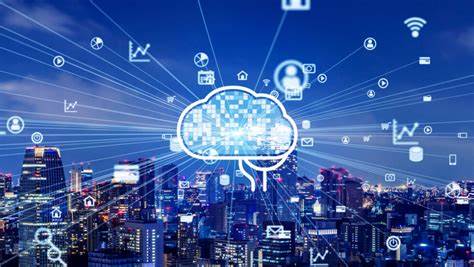
Contents
Cloud Computing in Building Automation: Revolutionizing Efficiency and Sustainability
Introduction
Cloud computing has emerged as a game-changing technology in various industries, including building automation. This article explores the definition of cloud computing in building automation, its relevance, and the structure of the article.
Historical Background
Building automation systems have evolved over the years, transforming the way buildings are managed and operated. The emergence of cloud computing has revolutionized this field, enhancing the capabilities and functionalities of building automation systems.
Key Concepts and Definitions
Building Automation Systems (BAS)
Building automation systems consist of various components that enable the centralized control and monitoring of building operations, such as HVAC, lighting, and security systems.
Cloud Computing
Cloud computing refers to the delivery of computing services over the internet, allowing users to access and store data and applications remotely. It can be categorized into public, private, and hybrid clouds.
Integration of Cloud Computing in Building Automation
The integration of cloud computing in building automation offers numerous benefits, including enhanced data accessibility, scalability, cost savings, and efficiency improvements. However, it also presents challenges and considerations that need to be addressed.
Main Discussion Points
Enhanced Data Accessibility and Scalability
Cloud computing enables remote access to building automation systems, making it easier for facility managers to monitor and control building operations from anywhere. Additionally, cloud-based solutions offer scalability benefits, allowing efficient management of multiple buildings or sites.
Cost Savings and Efficiency Improvements
Cloud computing reduces hardware and maintenance expenses, resulting in significant cost savings. Real-time data analysis and predictive analytics enable energy efficiency optimization, further enhancing operational efficiency.
Enhanced Security and Reliability
Cloud-based building automation systems implement robust security measures and data protection protocols. The redundancy and disaster recovery capabilities provided by cloud computing ensure enhanced reliability and minimal downtime.
Case Studies or Examples
Case Study: XYZ Company’s Implementation
XYZ Company implemented cloud computing in their building automation system, resulting in improved operational efficiency, energy savings, and streamlined maintenance processes.
Case Study: ABC Corporation’s Experience with Cloud-based Analytics
ABC Corporation integrated cloud-based analytics into their building automation, gaining valuable insights and optimizing energy consumption through data-driven decision-making.
Current Trends or Developments
Adoption of Internet of Things (IoT) in building automation
The integration of IoT devices in building automation systems allows for enhanced connectivity and automation, improving overall efficiency and enabling predictive maintenance.
Integration of Artificial Intelligence (AI)
AI technologies are being integrated into cloud-based building automation systems, enabling intelligent decision-making, predictive analytics, and adaptive control strategies.
Research Findings on Energy Savings and Sustainability
Studies have shown that cloud computing in building automation can lead to significant energy savings and promote sustainability by optimizing energy consumption and reducing carbon footprint.
Challenges or Controversies
Privacy Concerns and Data Ownership
The use of cloud-based solutions raises privacy concerns and questions regarding data ownership, necessitating robust data protection measures and clear ownership agreements.
Resistance to Change and Implementation Challenges
The adoption of cloud computing in building automation may face resistance from stakeholders and pose implementation challenges, requiring effective change management strategies.
Compatibility Issues with Legacy Systems
Integrating cloud-based solutions with legacy building automation systems may present compatibility issues, requiring careful planning and system integration.
Future Outlook
Increased Adoption of Cloud Computing
The benefits of cloud computing in building automation will drive its increased adoption, with more organizations leveraging its capabilities to optimize operations and reduce costs.
Advancements in AI and Machine Learning
Advancements in AI and machine learning will further enhance automation and optimization capabilities, enabling more intelligent and efficient building automation systems.
Integration of Blockchain Technology
The integration of blockchain technology will enhance security and trust in cloud-based building automation systems, ensuring data integrity and facilitating reliable transactions.
Conclusion
This article discussed the significance of cloud computing in building automation, highlighting its benefits and challenges. Cloud-based solutions offer enhanced data accessibility, cost savings, and improved security, paving the way for a more efficient and sustainable future in building automation.